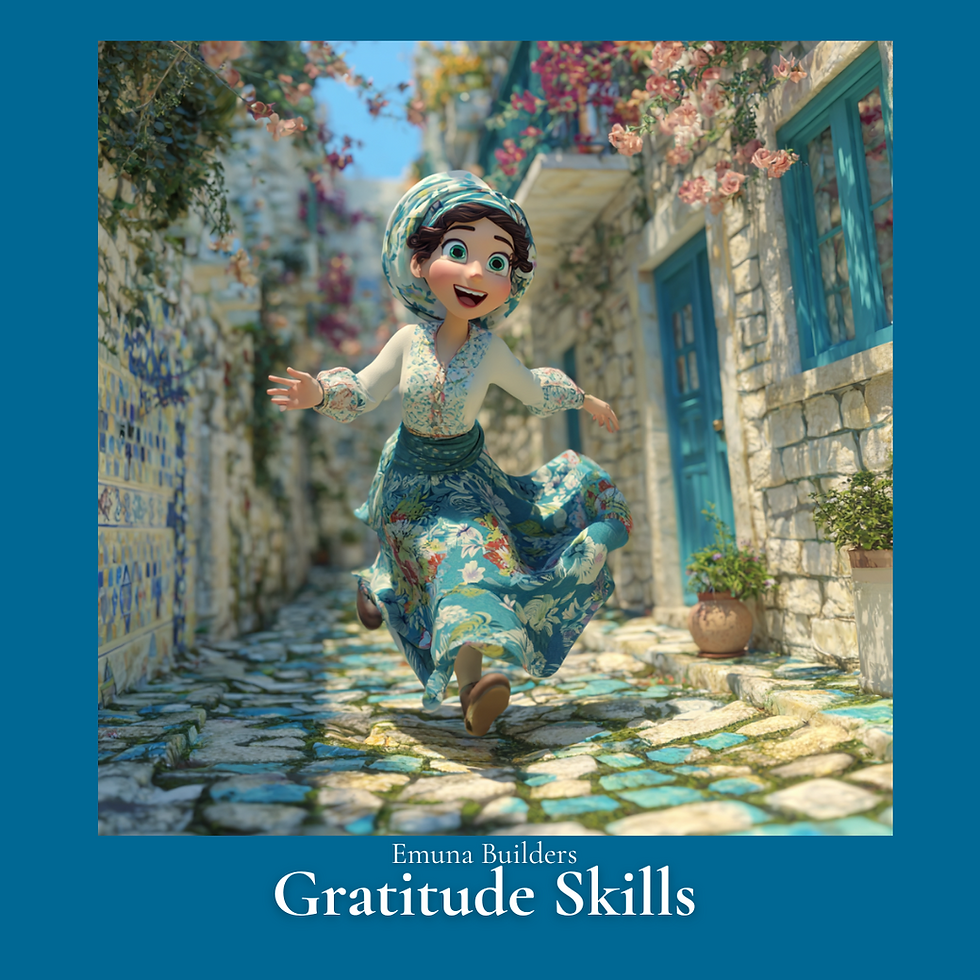Rabbi Moshe Chaim Luzzato: A Life of Genius, Piety, and Controversy
- Esther Nava

- Oct 5, 2024
- 4 min read
Rabbi Moshe Chaim Luzzato, often referred to as the Ramchal, was a unique and towering figure in Jewish history. From a young age, his brilliance and dedication to both religious and secular studies set him apart. Born in Italy in 1707, he was a child prodigy, mastering Hebrew, Italian, Aramaic, Latin, Greek, and French. He was said to have an extraordinary memory, with claims that “he did not know what it meant to forget something.” By the age of 14, he had memorized the entire Talmud, Midrash, and the works of the Ari, a remarkable feat for one so young.

Despite his secular knowledge, the Ramchal’s true passion was Kabbalah, and he began studying the mystical teachings under the guidance of Rabbi Moshe Zacuto, the Ramaz, one of the leading Kabbalists of the time. This early introduction to the deepest mysteries of the Torah shaped his life’s work. Together with a group of like-minded individuals, he formed a study group that was committed to self-improvement, spiritual purity, and constant connection to the Upper Worlds. They applied ethical rules to their interactions, ensuring that kindness and selflessness governed their relationships. In their pursuit of spiritual elevation, the group instituted a remarkable practice: one of the members would always be reading from a Kabbalistic text, often the Zohar, ensuring that a constant connection with the divine was maintained 24 hours a day.
This group, however, was not without its challenges. Their activities, and particularly Ramchal’s claim that his early Kabbalistic works had been written under the guidance of a maggid—a divine messenger from the Upper Worlds—caused significant controversy. Ramchal described his mystical experiences, where a voice revealed hidden secrets of the Torah to him, a claim that alarmed the rabbinic establishment. This was especially concerning in the aftermath of the Shabtai Tzvi episode, when false messianic movements had caused tremendous turmoil within the Jewish world.
Ramchal’s study group had messianic interests, and this further fueled suspicions. The chief rabbis of Padua, Venice, and Frankfurt became involved, and eventually, Ramchal was forced to hand over some of his more controversial writings, many of which were lost forever. His desire to spread Kabbalah more openly, making it accessible to the general Jewish community rather than restricting it to small elite circles, also set him apart. In this way, his vision was ahead of its time, perhaps comparable to later popular mystical movements like the Chassidic movement, which sought to uplift the masses.
In 1735, facing increasing opposition, Ramchal moved to Amsterdam, where he found a more welcoming environment. There, he continued to teach and write. It was in Amsterdam that he wrote his most famous work, Mesillat Yesharim (Path of the Just). This book is a guide to personal perfection and spiritual elevation, focusing on the human personality and the various moral challenges people face. Mesillat Yesharim has become one of the foremost texts studied in yeshivot around the world and is widely regarded as a classic work on Jewish ethics and Mussar.
Ramchal’s profound spirituality attracted students from all over, and his teachings continued to inspire despite the challenges he faced earlier in life. In total, he wrote over 40 books, covering Kabbalah, ethics, philosophy, and poetry. His works are still studied and revered today, with The Way of God being another key text that delves into the nature of the physical and spiritual worlds, the role of mankind, and the deeper aspects of divine providence.
In 1743, Ramchal moved to the Land of Israel, settling in the port city of Acco. Little is known about his life in the Holy Land, but tragically, just four years after arriving, in 1747, he and his family fell victim to an epidemic.
Though many of Ramchal’s opponents have long been forgotten, his teachings and profound spiritual insights continue to inspire Jews across the world. His works are studied by all segments of the Jewish community, from scholars of Kabbalah to those seeking moral and ethical guidance. The great Rabbi Eliahu, the Vilna Gaon, declared that Ramchal had the most profound understanding of Judaism that any mortal could attain. He even stated that if Ramchal were alive in his generation, he would have walked by foot from Vilna to Italy just to sit and learn from him.
The legacy of Rabbi Moshe Chaim Luzzato, despite the challenges and controversies of his time, continues to shine brightly. His life exemplifies the pursuit of knowledge, spiritual elevation, and a deep commitment to improving oneself and the world. May his merit protect us all. May his merit protect us.
In my book Pick Me Up HaShem, you’ll find many prayers that explore how HaShem is constantly drawing us closer to Him, inviting us into a deeper relationship through prayer and reflection. These prayers are designed to help you connect with the divine presence in a way that transcends mere requests and taps into the true purpose of prayer.
If you’re ready to dive deeper into these spiritual truths, consider studying Kabbalah, the mystical tradition that unlocks the profound secrets of our reality and draws us closer to HaShem’s divine wisdom. Delve into teachings that illuminate the “why” behind the Torah, connecting the layers of Creation in a synergized whole and offering a glimpse of HaShem in a way no other study can. From the timeless wisdom of Rabbi Chaim Vital and the Arizal to the unifying insights of Rabbi Sar-Shalom Sharabi (Rashash), Kabbalah not only transforms your spiritual understanding but also brings peace, protection, and redemption closer to our world. Sponsor my study in this sacred tradition and receive its blessings for sustenance, health, and family, ensuring that the powerful light of Kabbalah shines in your merit.

Comments